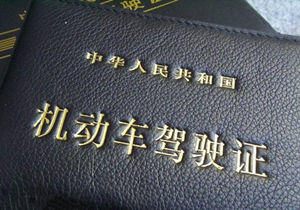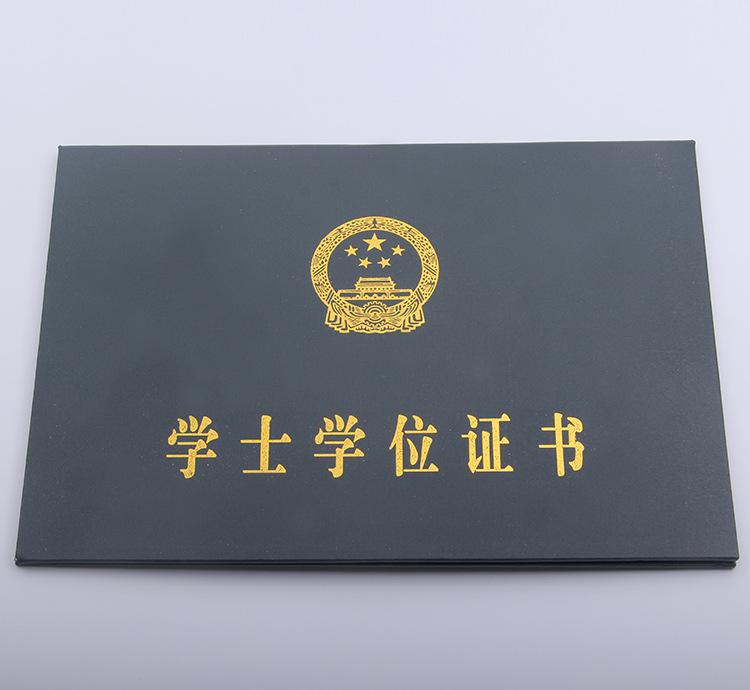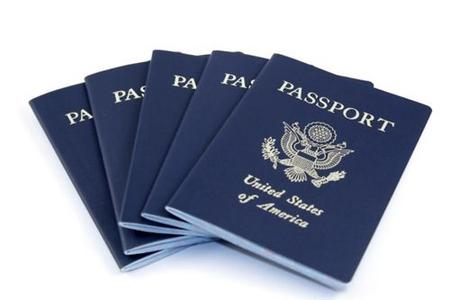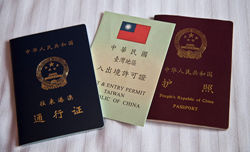常用翻译技巧
来源:未知 日期:2017-06-21 11:41
英汉两种语言在句法、词汇、修辞等方面均存在着很大的差异,因此在进行英汉互译时必然会遇到很多困难,需要有一定的翻译技巧作指导。常用的翻译技巧有增译法(amplification)、减译
英汉两种语言在句法、词汇、修辞等方面均存在着很大的差异,因此在进行英汉互译时必然会遇到很多困难,需要有一定的翻译技巧作指导。常用的翻译技巧有增译法(amplification)、减译法(omission)、重译法(repetition)、词类转移法(conversion)、词序调整法(inversion)、分译法(dicision)、正说反译反说正译法(negation)、语态变换法(the change of the voices)等。这些技巧不但可以运用于笔译之中,也可以运用于口译过程中,而且应该用得更加熟练,因为口译工作的特点决定了译员没有更多的时间进行思考。
增译法:指根据英汉两种语言不同的思维方式、语言习惯和表达方式,在翻译时增添一些词、短句或句子,以便更准确地表达出原文所包含的意义。这种方式多半用在汉译英里。汉语无主句较多,而英语句子一般都要有主语,所以在翻译汉语无主句的时候,除了少数可用英语无主句、被动语态或"There be…"结构来翻译以外,一般都要根据语境补出主语,使句子完整。英汉两种语言在名词、代词、连词、介词和冠词的使用方法上也存在很大差别。英语中代词使用频率较高,凡说到人的器官和归某人所有的或与某人有关的事物时,必须在前面加上物主代词。因此,在汉译英时需要增补物主代词,而在英译汉时又需要根据情况适当地删减。英语词与词、词组与词组以及句子与句子的逻辑关系一般用连词来表示,而汉语则往往通过上下文和语序来表示这种关系。因此,在汉译英时常常需要增补连词。英语句子离不开介词和冠词。另外,在汉译英时还要注意增补一些原文中暗含而没有明言的词语和一些概括性、注释性的词语,以确保译文意思的完整。总之,通过增译,一是保证译文语法结构的完整,二是保证译文意思的明确。如:
(1)What about calling him right away?
马上给他打个电话,你觉得如何? (增译主语和谓语)
(2)If only I could see the realization of the four modernizations.
要是我能看到四个现代化实现该有多好啊!(增译主句)
(3) Indeed, the reverse is true
实际情况恰好相反。(增译名词)
(4)就是法西斯国家本国的人民也被剥夺了人权。
Even the people in the fascist countries were stripped of their human rights.(增译物主代词)
(5)只许州官放火,不许百姓点灯。
While the magistrates were free to burn down house, the common people were forbidden to light lamps. (增译连词)
(6)这是我们两国人民的又一个共同点。
This is yet another common point between the people of our two countries.(增译介词)
(7)在人权领域,中国反对以大欺小、以强凌弱。
In the field of human rights, China opposes the practice of the big oppressing the small and the strong bullying the weak.(增译暗含词语)
(8)三个臭皮匠,合成一个诸葛亮。
Three cobblers with their wits combined equal Zhuge Liang the mastermind.(增译注释性词语)
减译法
增译法的反面
减译法是指原文中有些词在译文中不译出来,因为译文中虽无其词而已有其意,或者在译文中是不言而喻的;
减译法是删去一些可有可无的, 或者有了反而累赘或违背译文习惯表达法的词, 并不是把原文的某些思想内容删去。
省译和增补是相辅相成的两种翻译技巧。省译和分为结构省译和精炼压缩。
所谓结构省译是由于英汉两种语言在句子结构上的差异造成的。在英译汉时经常省略的词有代词、系词、介词、连词、冠词、先行词等。 作主语和定语的人称代词以及做定语的物主代词均可省译。
如果把结构省译看作是消极的省译手段,那么精炼压缩则是积极的省译手段,前者明显,后者隐晦。
A book is useful.
书(是)由用(的)。
The earth goes around the sun.
地球绕太阳转。
On Sundays we have no school.
礼拜天我们不上学。
If you write him, the response would be absolute silence and void.
你写信给他,总是石沉大海。
A wise man will not marry a woman who has attainments but no virtue.
聪明的人是不会娶有才无德的女子为妻的。
It isn’t rum for a woman to want her old husband back, for respectability, though for a man to want his old wife back – well, perhaps it is funny, rather!
(一个)女人为了体面(的关系)而要(她的从)前(的那个丈)夫回来,这并不(是)奇怪(的事),虽然(一个)男人要(他从)前(的那个)妻(子)回来,也许是很有趣的事。
词类转移法和语态变换法:指翻译过程中为了使译文符合目标语的表述方式、方法和习惯而对原句中的词类、句型和语态等进行转换。具体的说,就是在词性方面,把名词转换为代词、形容词、动词;把动词转换成名词、形容词、副词、介词;把形容词转换成副词和短语。在句子成分方面,把主语变成状语、定语、宾语、表语;把谓语变成主语、定语、表语;把定语变成状语、主语;把宾语变成主语。在句型方面,把并列句变成复合句,把复合句变成并列句,把状语从句变成定语从句。在语态方面,可以把主动语态变为被动语态。如:
(1)我们学院受教委和市政府的双重领导。
Our institute is co-administrated by the States Education Commission and the municipal government. (名词转动词)
(2)Too much exposure to TV programs will do great harm to the eyesight of children.
孩子们看电视过多会大大地损坏视力。(名词转动词)
(3)由于我们实行了改革开放政策,我国的综合国力有了明显的增强。
Thanks to the introduction of our reform and opening policy, our comprehensive national strength has greatly improved. (动词转名词)
(4)I’m all for you opinion.
我完全赞成你的意见。(介词转动词)
(5)The reform and opening policy is supported by the whole Chinese people.
改革开放政策受到了全中国人民的拥护。(动词转名词)
(6)In his article the author is critical of man’s negligence toward his environment.
作者在文章中,对人类疏忽自身环境作了批评。(形容词转名词)
(7)In some of the European countries, the people are given the biggest social benefits such as medical insurance.
在有些欧洲国家里,人民享受最广泛的社会福利,如医疗保险等。(被动语态转主动语态)
(8)时间不早了,我们回去吧!
We don’t have much time left. Let’s go back. (句型转换)
(9)学生们都应该德、智、体全面发展。
All the students should develop morally, intellectually and physically. (名词转副词)
分译法和合并法:这是两种相对应的翻译方法。分译法是把一个长而复杂的句子拆译成若干个较短、较简单的句子,通常用于英译汉;合并法是把若干个短句合并成一个长句,一般用于汉译英。汉语强调意合,结构较松散,因此简单句较多;英语强调形合,结构较严密,因此长句较多。所以汉译英时要根据需要注意利用连词、分词、介词、不定式、定语从句、独立结构等把汉语短句连成长句;而英译汉时又常常要在原句的关系代词、关系副词、主谓连接处、并列或转折连接处、后续成分与主体的连接处,以及意群结束处将长句切断,译成汉语分句。这样就可以基本保留英语语序,顺译全句,顺应现代汉语长短句相替、单复句相间的句法修辞原则。如:
(1) Increased cooperation with China is in the interests of the United States.
同中国加强合作,符合美国的利益。 (在主谓连接处拆译)
(2)I wish to thank you for the incomparable hospitality for which the Chinese people are justly famous throughout the world.
我要感谢你们无与伦比的盛情款待。中国人民正是以这种热情好客而闻明世界的。(在定语从句前拆译)
(3)This is particularly true of the countries of the commonwealth, who see Britain’s membership of the Community a guarantee that the policies of the community will take their interests into account
英联邦各国尤其如此,它们认为英国加入欧共体,将能保证欧共体的政策照顾到它们的利益。(在定语从句前拆译)
(4)中国是个大国,百分之八十的人口从事农业,但耕地只占土地面积的十分之一,其余为山脉、森林、城镇和其他用地。
China is a large country with four-fifths of the population engaged in agriculture, but only one tenth of the land is farmland, the rest being mountains, forests and places for urban and other uses.(合译)
语序调整法:通常用于汉译英,偶尔也用于英译汉。所谓正译,是指把句子按照与汉语相同的语序或表达方式译成英语。所谓反译则是指把句子按照与汉语相反的语序或表达方式译成英语。正译与反译常常具有同义的效果,但反译往往更符合英语的思维方式和表达习惯。因此比较地道。如:
(1) 在美国,人人都能买到枪。
In the United States, everyone can buy a gun. (正译)
In the United States, guns are available to everyone. (反译)
(2) 你可以从因特网上获得这一信息。
You can obtain this information on the Internet. (正译)
This information is accessible/available on the Internet. (反译)
(3) 他突然想到了一个新主意。
Suddenly he had a new idea. (正译)
He suddenly thought out a new idea. (正译)
A new idea suddenly occurred to/struck him. (反译)
(4) 他仍然没有弄懂我的意思。
He still could not understand me. (正译)
Still he failed to understand me. (反译)
(5) 无论如何,她算不上一位思维敏捷的学生。
She can hardly be rated as a bright student. (正译)
She is anything but a bright student. (反译)
(6) Please withhold the document for the time being.
请暂时扣下这份文件。(正译)
请暂时不要发这份文件。(反译)
正说反译、反说正译法
反说
英语词句中含有 “never”, “no”, “non-”,
“un-”, “im-”, “ir-”, “-less” 等成分; 汉语词句中含有 “不,没,无,未,甭,别,休,莫,非,勿,毋” 等成
She refrained from laughing.
她忍住了,没有发笑。
She was refused admittance by them.
他们不许她进去。
An opportunity is not likely to repeat itself.
良机难再。
All that glitters is not gold.
All is not lost. 并非全失。
But all men are not born to reign. 并非人人生来就都是作帝王的。
All that flatter you too much are not faithful friends.
吹捧你的人并非都是你的忠实朋友。
Both children are not clever.
并非两个孩子都聪明。
Private. 闲人莫入。
Keep upright. 切勿倒置。
Wet paint. 油漆未干。
Urban clearway. 市区通道,不准停车。
Inflammables --- keep away from fire.
易燃物品,请勿近火。
No deposit will be refunded unless ticket produced. 凭票退还押金。
These visits will operate only if weather permits. 以上参观项目遇雨停止或改期。
If you forward the transcripts yourself, they can be considered official only if the school envelope has remained sealed.
如果你本人递交证件,只有校方信封保持密封才可以被认为是正视的。(误)
如果证件由申请人本人递交,则本人不得擅自启封,否则证件将视为无效。(正)







 百度统计
商桥
百度统计
商桥